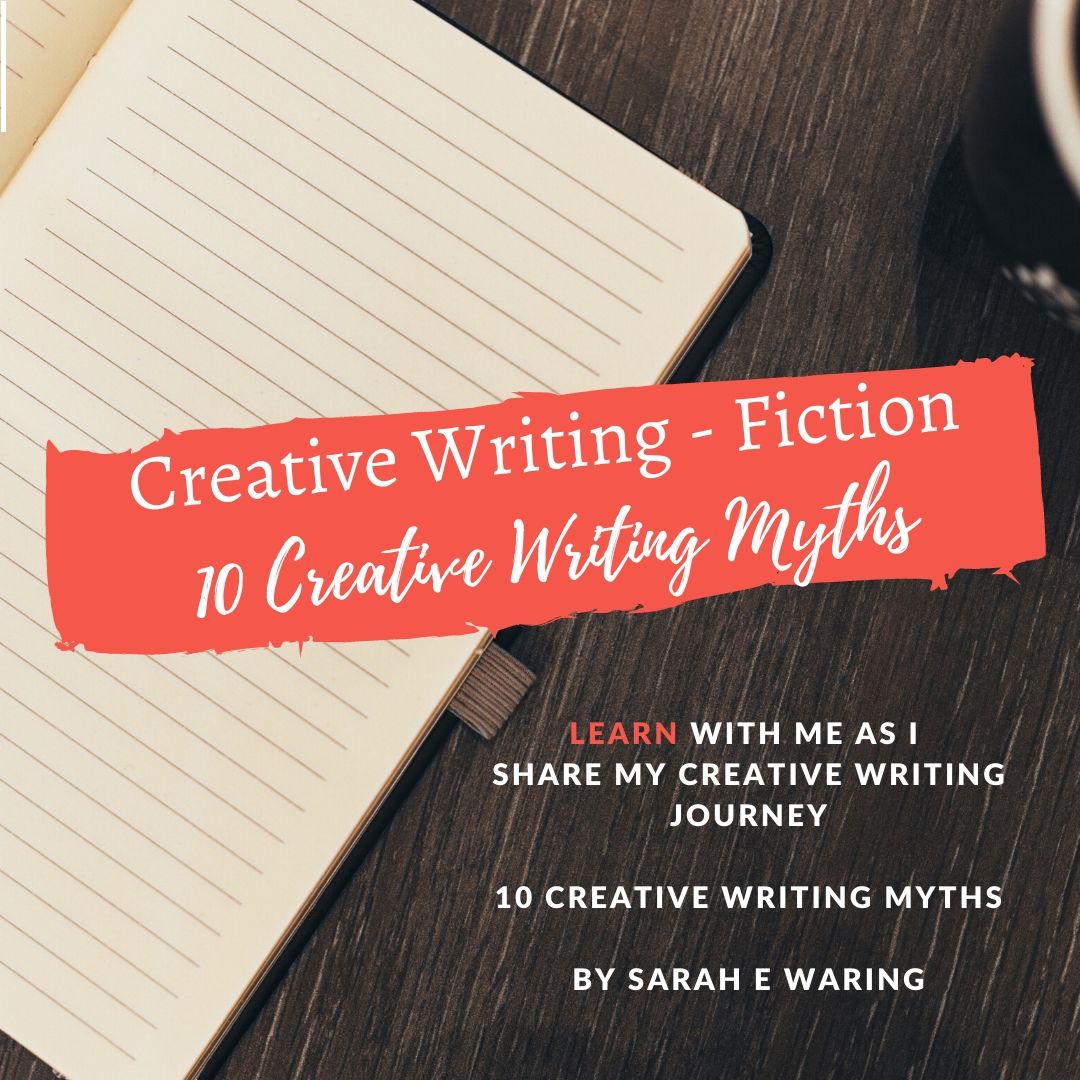10 Myths around Creative Writing
Whatever you do in the world, there will always be someone who claims to be the most experienced in their field. These people can either be a godsend or someone that can knock your confidence right back to square one.
In the writing field, these people can be very much in the public eye as most writers will take to writing online and publicly, in some form. What I want to highlight today, first and foremost, (before we go into my new 'list') is that there are no RULES in creative writing. If you are watching someone online, ranting about how good they are, without any merit, avoid like the plague.
In my experience, ranting writing forums will not help you gain credibility but will leave you feeling pretty frustrated.
In creative writing, there are only guidelines and tips to help you, as a writer, to offer the best literature for your readers. Take guidance from a few and from people with similar writing goals and credibility. That would be my humble advice.
10 Creative Writing Myths
You have to be good at editing to be a creative writer - Not true. You can hire a professional for editing if need be. Creative writing is about the imagination. No editor can produce what you have in YOUR imagination, but they can help you to look more professional with any published literature. The exception, of course, would be if you wanted a job as a freelance/employed writer eg; editor, journalist etc, then use you would need to have good grammatical skills too.
I don't need an editor as I passed my GCSE in English 10 years ago - You don't necessarily need an editor, but you may need to brush up on your skills. Grammar is always changing, grammar 'rules' are a lot different now than what they were, 10, 20... 30 years ago! Basic grammar rules, I admit, will probably never change, but style and presentation may. You have to stay up to speed. However, the beauty of creative writing is that rules are there to be broken and, as above, if you are not comfortable with doing it, bring in the professionals! Just make sure your grammar is suitable for your audience!
You have to have qualifications to be a creative writer - Not necessarily. If you are applying for a job as a journalist, let's say, it may be a requirement. However, if you are aiming to produce your own works, then experiment. There is lots of stuff online where you can learn guidelines for free! Practice, practice and more practice will create an abundance of creativity.
Creative writing qualifications will not get you a career -In continuation of the point above, it is a myth that creative writing is a flimsy qualification, but creative writing qualifications are hugely popular in different careers such as journalism, marketing and blogging. It also looks good when submitting books to publishers as they want to know your experience/qualifications.
Creative writing is academic - Creative writing is not always seen as academic as it is set to trigger the imagination, not to necessarily educate as such! You can educate in a creative writing style, however.
You should read a lot to be a good creative writer - Yes... no...maybe. This statement is a little too misguided and should have a grey area. In fact, it should say 'You should absorb a lot of literature to be a good writer.' Remember, there are some great authors out there who are blind, dyslexic or may suffer from offer learning difficulties. Literature in this day an age can be absorbed through audiobooks very successfully.
It doesn't matter how good you are, to be a successful writer, you need luck - Unfortunately, yes, and a lot of perseverance. You cannot simply write a book/article and expect it to be successful without anything else added. Yes, you need a dash of luck and you need opportunity because a book/article is not going to publicise itself. BUT you also need good content when it strikes. No point in having good luck if people are not going to like your content. Many best-sellers are ridiculed for their poor writing quality, but they will have a niche and a 'hook' that is attractive. That has a huge part to play in creative writing. So, write, come up with a marketing strategy, then strike when the opportunity hits.
You need to write in inspiring places like coffee shops - Only if it helps YOU. Everyone is different, some people work with music, for example, some people don't. Some people like to go to an inspiring place, whilst others prefer sitting at home at the kitchen table.
Creative writers should ignore bad reviews - No you shouldn't because you need to find out what the patterns are. Spammers and general mischief-makers will start to become familiar over time, and other bad reviews may help you to write better. But always remember, sometimes people can be harsh if your work is just not to their taste.
Creative writing skills are different from academic writing - Yes ... and no. Academic writing adheres to strict style parameters whereas creative writing does not. However, all writing skillsets should employ the ability to phrase words attractively to suit their audience.
About me - I'm Sarah, I am a self-published author, copywriter and colour therapist. I am also in my final studies of a creative writing & philosophy BA
